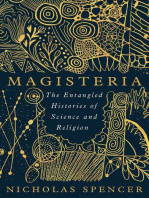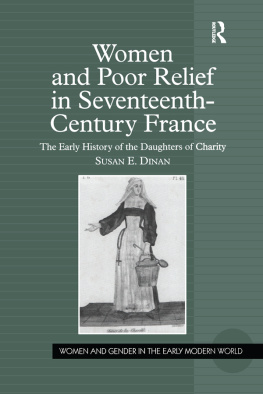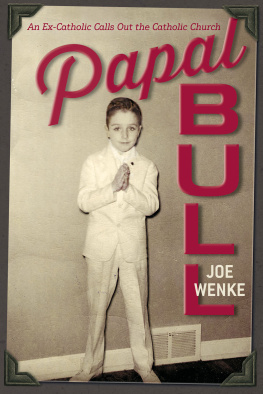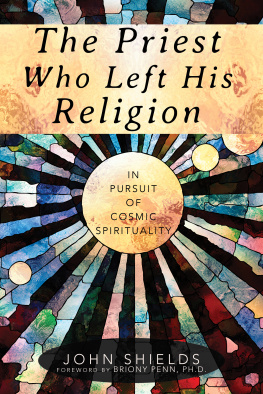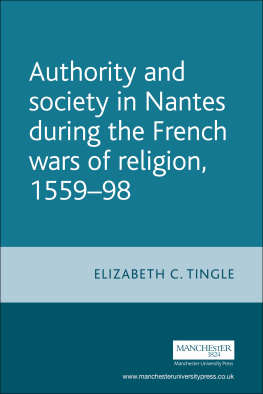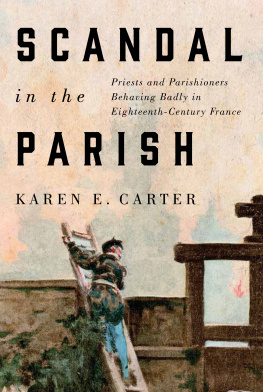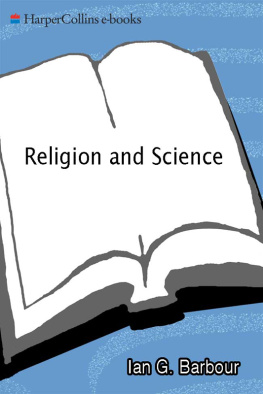Beyond the Contingent
Epistemological Authority, a Pascalian Revival, and the Religious Imagination in Third Republic France
Copyright 2011 Kathleen A. Mulhern. All rights reserved. Except for brief quotations in critical publications or reviews, no part of this book may be reproduced in any manner without prior written permission from the publisher. Write: Permissions, Wipf and Stock Publishers, 199 W. 8th Ave., Suite 3, Eugene, OR 97401.
Pickwick Publications
An Imprint of Wipf and Stock Publishers
199 W. 8th Ave., Suite 3
Eugene, OR 97401
www.wipfandstock.com
isbn 13: 978-1-60899-370-3
eisbn 13: 978-1-63087-695-1
Cataloging-in-Publication data:
Mulhern, Kathleen A.
Beyond the contingent : epistemological authority, a Pascalian revival, and the religious imagination in Third Republic France / Kathleen A. Mulhern ; with a foreword by Martha Hanna.
xviii + 212 p. ; 23 cm. Including bibliographical references and index.
isbn 13: 978-1-60899-370-3
1. FranceHistoryThird Republic, 18701940. 2. Pascal, Blaise, 16231662. 3. Duhem, Pierre Maurice Marie, 18611916. 4. Blondel, Maurice, 18611949. 5. Laberthonnire, Lucien, 18601932. 6. Religion and science. 7. Church and stateFranceHistory19th century. 8. Catholic ChurchFranceHistory19th century. I. Hanna, Martha. II. Title.
dc337 m70 2011
Manufactured in the U.S.A.
To Steven C.by way of Goethe because of lunique ncessaire.
Foreword
C ulture wars are not unique to contemporary America. Indeed, a culture war as divisive, acrimonious, and apparently interminable as the one that currently pits Creationists against Darwinians and red states against blue states characterized late nineteenth-century France, and for many of the same reasons. The spiritual heirs of the French Revolution of 1789 believed that the very future of France depended upon securing once and for all the foundations of a democratic and secular republic that respected science, consigned superstition (and all its irrational manifestations) to the past, and minimized what they were convinced was the pernicious influence of organized religion in politics, culture, and everyday life. Outraged and appalled by the prospect of a Godless and mindlessly materialist revolutionary modernity, social conservatives championed a moral order predicated on the preservation or restoration of everything that the Revolution of 1789 had worked to eradicate from French life: hierarchy, obedience, faith. This culture war did not originate in the 1880s and 1890sit had been evident since the Revolution itselfbut three important developments of the late nineteenth century brought the divide into ever-sharper relief. The unambiguous triumph of republicanism in the elections of 1879 meant that a monarchical restoration, still a possibility through the 1870s, was henceforth most unlikely; the increasing dominance of science in intellectual life threatened to undermine or render irrelevant the religious truths that had persisted in spite of Revolutionary anticlericalism; and the failure of the Vaticans efforts to seek a working reconciliation with French republicanismthrough the stillborn venture in 1892 of the Ralliement combined to alienate conservative Catholics from the Third Republic, to intensify Republican anticlericalism, and to create a political and cultural chasm in French public life that seemed well nigh unbridgeable.
This, at least, is how we have long understood the political and cultural history of late nineteenth-century France: two spiritual families eternally at odds with one another, incapable of seeking common ground, indifferent in fact to the very possibility of doing so. And yet, as Kathleen Mulhern reveals in Beyond the Contingent , this vision of a profoundly, irrevocably divided nationin which men of faith stood on one side looking contemptuously at the men of science on the other, and the men of science looked, with equal contempt, upon their benighted, religiously befuddled intellectual adversariesdoesnt quite tell the whole story and certainly doesnt do justice to those who genuinely hoped to achieve an intellectual rapprochement that would allow men of true faith to respect the real accomplishments of modern science while affirming the existence of God.
The scholars examined in Beyond the Contingent were united in their belief that such a rapprochement was sorely needed in the crisis years of the fin-de-sicle and they were convinced that the ideas of Blaise Pascal, the seventeenth-century mathematician, philosopher, and man of faith, held the key to succeeding at this intellectual project. Indeed, the neo-Pascalians whose philosophical reflections constitute the core of this books analysisPierre Duhem (18611916), Maurice Blondel (18611949), and Lucien Laberthonnire (18601932)embraced Pascals philosophy of knowledge precisely because it seemed uniquely equipped to address the challenges and transcend the obstacles that confronted Catholic intellectuals at the end of the nineteenth century. Pascal had affirmed a hierarchy of orders of knowledge that acknowledged the legitimacy of science, reason, and faith. Pascal did not reject science or deny the utility of knowledge derived from scientific, empirical inquiry; rather, he merely affirmed its limits. Science could know many things; but it could not know everything. Nor could reason, the second order of knowledge, inspire definitive and certain knowledge of God. Ultimately, Pascal contended, individual faith in the existence of God comes neither from science, nor from reason, nor from accepting unthinkingly the dogma affirmed by the Church. Rather, faith comes from within, from the reason of the heart. Why these Pascalian principles resonated for a community of French Catholic intellectuals at the end of the nineteenth century and why their efforts to constitute a philosophical system that simultaneously respected the accomplishments of science, affirmed the existence of God, and honored the autonomy of the individual conscience ultimately failed is the story that Beyond the Contingent unpacks with admirable rigor.
The late nineteenth century was a challenging age for French Catholic intellectuals, and most especially for those who aspired, in Kathleen Mulherns words, to the renewal of the Church through the reconciliation of modern thought with Catholic tradition (p. 2). Many, but not all, of the challenges that confronted Catholic scholars, were generated by the progressive political agenda and intellectual character of the Third Republic (18701940). Forged in the tumultuous circumstances of military defeat and challenged by threats of monarchical restoration throughout the 1870s, the Third Republic secured in 1879 the political victory that allowed it in the following decade to root republican principles so firmly in the soil of the national psyche that the Revolutionary ideals of liberty, equality, and fraternitya secular trinity to which the Republic was fundamentally committed but which the nation had only intermittently honored since 1789would at last thrive. Once armed with the requisite political authority, Republican politicians dedicated themselves to the creation of a moderate but avowedly secular republic that would banish the memories and avoid the excesses of the Reign of Terror (to which all republican regimes in France were inevitably compared), while de-fanging the twin perils of working class radicalism and conservative authoritarianism. Thus the Republic cultivated an ethos and established a legislative agenda that combined relentless anticlericalism with triumphant scientism. By liberating France from the shackles of religious orthodoxy (the most loyal indomitable ally of political conservatism since the Revolution) and by encouraging material progress grounded in scientific innovation, the Third Republic resolved to fulfill at last the promise of 1789.


